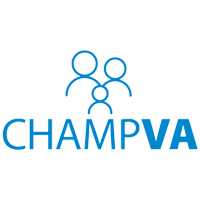I am very excited to go to ARC it seems very luxurious and successful. I reaaaaaaaaaaaaaaaaaaaaaaaaaalllllllllyyyyyyyyyyy wanna be there and I think it can change my life. I am ready to go right now and recommend anybody else to do the same.
About ARC Arizona Rehab Campus Tucson
America’s Rehab Campuses (ARC) in Tucson, Arizona, is a 24-hour rehab treatment facility east of downtown Tucson. This facility is near Morris K. Udall Recreation Park, Tanque Verde Wash, Sabino Canyon Recreation Area, and other community resources for recovery. This facility provides a structured environment with round-the-clock support for adult patients.
Medical Detoxification Support
ARC of Tucson, AZ, provides medical detoxification and withdrawal management with 24/7 medical supervision. They provide partial hospitalization and outpatient programs for addiction treatment. Medication-Assisted Treatment (MAT) addresses opioid and alcohol use disorders with life-saving medications like Suboxone and Vivitrol.
This facility offers dual diagnosis and co-occurring treatment to address substance use and underlying mental health conditions. This evidence-based program helps patients step down from substance use, while focusing on recovery and relapse prevention.
I’ve read client reviews that state the facility has compassionate staff who provide individualized attention for sobriety. Many patients report a strong sense of community, ongoing support, and life-changing results post-treatment.
Holistic and Whole Body Approach
America’s Rehab Tucson Campus focuses on treating the individual as a whole, including the mind, body, and spirit. This mindset has a holistic approach but is backed by evidence-based therapies including cognitive behavioral therapy (CBT), dialectical behavioral therapy (DBT), motivational Interviewing (MI), and family counseling.
This facility offers holistic services including yoga, meditation, art and music therapy, exercise, and recreational therapy. They emphasize life-skills training and relapse prevention education. The staff has emphasized that these programs, once again, focus on holistic and whole body approaches, which aid to each client’s individual recovery journey.
ARC of Tucson, AZ, offers chef-prepared nutritious meals as well as an on-site fitness center. Since the facility focuses on a more holistic approach, relapse is less likely.
ARC offers verification of benefits and financial guidance for clients and families seeking affordable care. Clients can use their insurance or self-pay options.
Latest Reviews
Rehab Score
Gallery
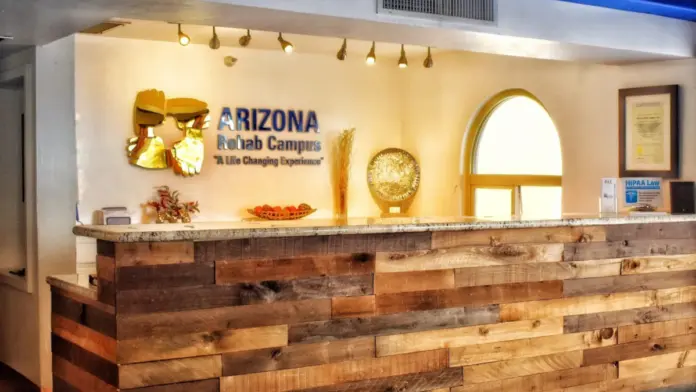
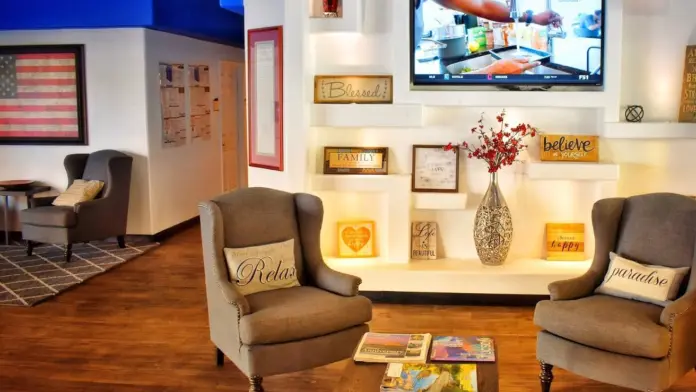
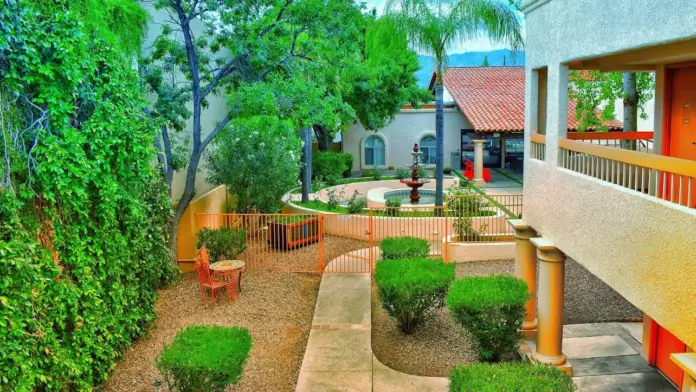
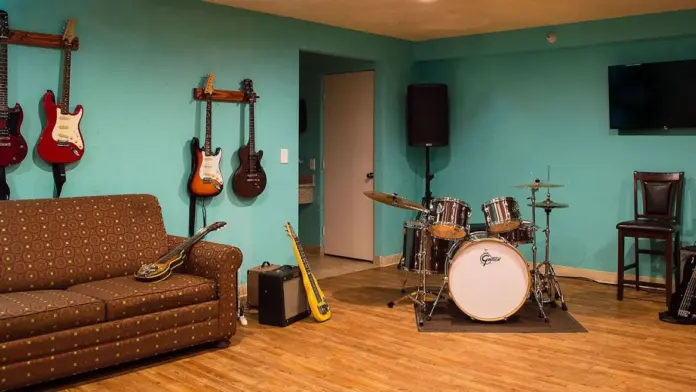
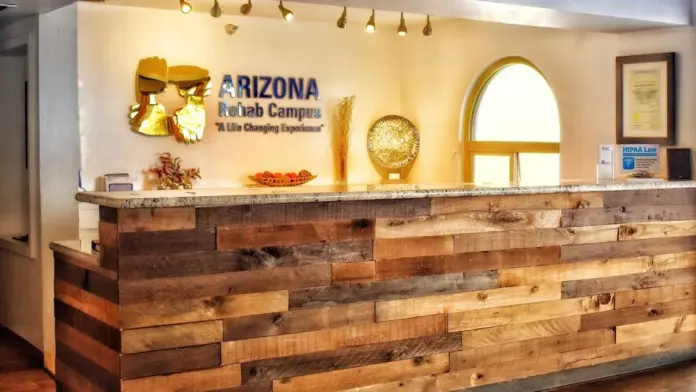
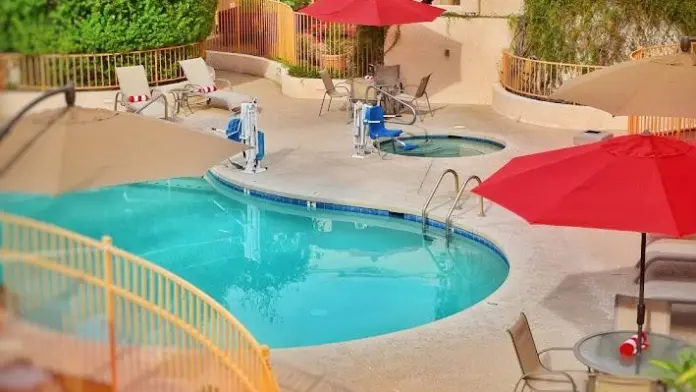
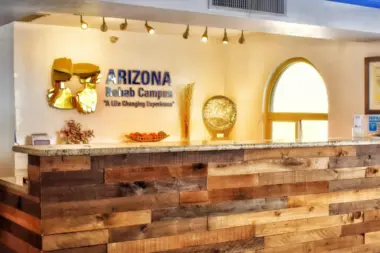

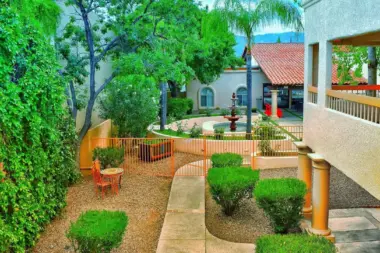
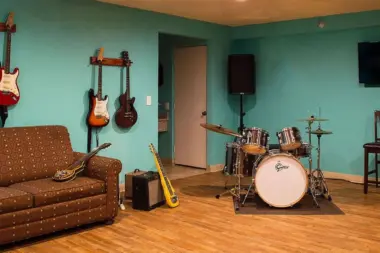
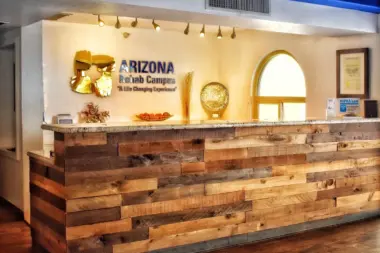
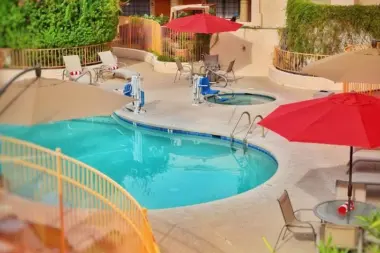
Accepted Insurance


Other Forms of Payment
Self-pay involves paying for treatment out of your own pocket. You can use savings or credit, get a personal loan, or receive help from family and friends to fund your treatment. If you don't have insurance or your insurance plan doesn't cover a specific program, self-pay can help ensure you still get the care you need.
Private insurance refers to any kind of healthcare coverage that isn't from the state or federal government. This includes individual and family plans offered by an employer or purchased from the Insurance Marketplace. Every plan will have different requirements and out of pocket costs so be sure to get the full details before you start treatment.
Medicare is a federal program that provides health insurance for those 65 and older. It also serves people under 65 with chronic and disabling health challenges. To use Medicare for addiction treatment you need to find a program that accepts Medicare and is in network with your plan. Out of pocket costs and preauthorization requirements vary, so always check with your provider.
Military members, veterans, and eligible dependents have access to specific insurance programs that help them get the care they need. TRICARE and VA insurance can help you access low cost or no cost addiction and mental health treatment. Programs that accept military insurance often have targeted treatment focused on the unique challenges military members, veterans, and their families face.
Addiction Treatments
Levels of Care
ARC Tucson’s outpatient rehab offers flexible therapy sessions, skill-building workshops, and recreational activities designed to fit into patients’ schedules. This day program helps establish sober living skills while allowing individuals to maintain daily responsibilities.
ARC Tucson’s inpatient rehab provides 24-hour clinical care in a comfortable residential setting, ideal for those with severe addiction or co-occurring mental health conditions. The program includes individualized treatment plans, therapy, and life skills preparation.
ARC Tucson’s PHP offers intensive outpatient therapy, including individual, group, and family counseling, with a focus on developing healthy routines. The program meets five days a week, providing structured support for those needing more than typical outpatient care.
ARC Tucson’s detox facilities provide medically supervised detox treatment for substances like heroin, opioids, and alcohol. Using medications to reduce withdrawal symptoms, their detox programs ensure safety and comfort during the critical initial recovery phase.
ARC Tucson offers aftercare programs including group therapy, 12-step meetings, and family therapy to support ongoing sobriety. Their personalized aftercare planning helps clients maintain long-term recovery after completing inpatient or outpatient treatment.
ARC Tucson’s inpatient treatment features 24-hour clinical care with highly specialized staff, including therapy, career counseling, and supportive amenities like fitness facilities. This comprehensive care environment prepares clients for life after addiction.
Treatments
ARC Arizona Rehab Campus Tucson offers personalized alcohol rehab programs designed to help individuals achieve abstinence through evidence-based therapies like behavioral counseling and medication-assisted treatment. Their tailored approach ensures each patient receives comprehensive care for long-term recovery from alcoholism.
ARC Tucson provides inpatient treatment with individualized care plans that incorporate therapies such as cognitive-behavioral therapy and group support. Their residential treatment environment helps clients overcome physical dependence and psychological addiction, fostering lasting drug recovery.
ARC Tucson’s dual diagnosis treatment integrates mental health and substance abuse therapies, including CBT and family therapy, within their partial hospitalization program. This comprehensive approach addresses co-occurring disorders to support sustained addiction recovery.
ARC Tucson provides outpatient treatment for opioid addiction, including medications to reduce cravings and relapse prevention strategies. Their programs include ongoing support through support groups and mental health services, essential for long-term recovery.
ARC Tucson’s outpatient rehab offers flexible therapy sessions, skill-building workshops, and recreational activities designed to fit into patients’ schedules. This day program helps establish sober living skills while allowing individuals to maintain daily responsibilities.
Programs
ARC Tucson’s adult inpatient program offers personalized treatment plans, career counseling, and supportive services such as beauty and fitness amenities. The program prepares clients for sober living and long-term recovery through tailored therapy and life skills development.
ARC Tucson’s young adult inpatient program provides individualized care with specialized therapists, recreational activities, and career counseling. The program focuses on personal development and recovery skills to support young adults in overcoming addiction and preparing for a successful future.
Clinical Services
Animal therapy (aka pet therapy or animal-assisted therapy) can be very healing, as it allows patients to bond with animals, who give unconditional love. This is particularly useful for those who suffered trauma by the hands of people, who may be able to trust and form closer attachments to animals than humans at certain stages of rehabilitation.
Cognitive Behavioral Therapy (CBT) is a therapy modality that focuses on the relationship between one's thoughts, feelings, and behaviors. It is used to establish and allow for healthy responses to thoughts and feelings (instead of unhealthy responses, like using drugs or alcohol). CBT has been proven effective for recovering addicts of all kinds, and is used to strengthen a patient's own self-awareness and ability to self-regulate. CBT allows individuals to monitor their own emotional state, become more adept at communicating with others, and manage stress without needing to engage in substance abuse.
Creativity is inherently healing, and can help those in recovery express thoughts or feelings they might not otherwise be able to. Creative arts therapy can include music, poetry/writing, painting, sculpting, dance, theater, sandplay, and more. Unlike traditional art, the final product matters far less than the experience of creation and expression itself.
Dialectical Behavior Therapy (DBT) is a modified form of Cognitive Behavioral Therapy (CBT), a treatment designed to help people understand and ultimately affect the relationship between their thoughts, feelings, and behaviors. DBT is often used for individuals who struggle with self-harm behaviors, such as self-mutilation (cutting) and suicidal thoughts, urges, or attempts. It has been proven clinically effective for those who struggle with out-of-control emotions and mental health illnesses like Borderline Personality Disorder.
Experiential therapy is a form of therapy in which clients are encouraged to surface and work through subconscious issues by engaging in real-time experiences. Experiential therapy departs from traditional talk therapy by involving the body, and having clients engage in activities, movements, and physical and emotional expression. This can involve role-play or using props (which can include other people). Experiential therapy can help people process trauma, memories, and emotion quickly, deeply, and in a lasting fashion, leading to substantial and impactful healing.
Research clearly demonstrates that recovery is far more successful and sustainable when loved ones like family members participate in rehab and substance abuse treatment. Genetic factors may be at play when it comes to drug and alcohol addiction, as well as mental health issues. Family dynamics often play a critical role in addiction triggers, and if properly educated, family members can be a strong source of support when it comes to rehabilitation.
Group therapy is any therapeutic work that happens in a group (not one-on-one). There are a number of different group therapy modalities, including support groups, experiential therapy, psycho-education, and more. Group therapy involves treatment as well as processing interaction between group members.
In individual therapy, a patient meets one-on-one with a trained psychologist or counselor. Therapy is a pivotal part of effective substance abuse treatment, as it often covers root causes of addiction, including challenges faced by the patient in their social, family, and work/school life.
Life skills trainings involve all the skills a person must have in order to function successfully in the world. These include time management, career guidance, money management, and effective communication. Truly successful addiction recovery is based on the ability to not only live substance-free, but to thrive. Life skills teaches the practical necessities of functioning in society, which sets clients up for success in life, and therefore sobriety.
Motivational Interviewing (MI) is a clinical approach to helping people with substance abuse issues and other conditions shift behavior in positive ways. It is more goal-oriented than traditional psychotherapy, as MI counselors directly attempt to get clients to consider making behavioral change (rather than wait for them to come to conclusions themselves). Its primary purpose is to resolve ambivalence and help clients become able to make healthy choices freely.
Nutrition therapy, aka medical nutrition therapy (MNT), is a way of treating physical, emotional, and medical conditions through diet. Specific dietary plans are designed by professional nutritionists or registered dietitians, and patients follow them in order to positively affect their physical and mental health.
Recreational therapy (aka therapeutic recreation) uses creative and fun activities to help with addiction recovery. Recreational therapists lead patients in entertaining and engaging activities like sports or games; art (drawing, painting, sculpture); drama, music, and dance; and/or community outings (field trips) to improve patients' physical, social, and emotional well-being.
Amenities
-
Private Transportation
-
Residential Setting
-
Private Rooms
-
Gym
-
Yoga Studio
Staff & Accreditations
Staff

Michael Zipprich
Founder & COO

Franklyn Jeans
CEO

Bryan Adamson
CFO
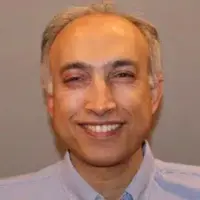
Talal Alsbiei, DR
Medical Director
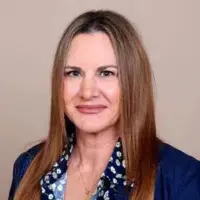
Diana Verdugo, FNP-C
Corporate Medical Administrator and Corporate Director of Nursing

Jefferson Borie
Director of Admissions

Courtney Chettle
Clinical Director

Magaly Arevalo
Director of Human Resources
Accreditations

The Commission on Accreditation of Rehabilitation Facilities (CARF) is a non-profit organization that specifically accredits rehab organizations. Founded in 1966, CARF's, mission is to help service providers like rehab facilities maintain high standards of care.
CARF Accreditation: Yes
Accreditation Number: 290726

The Joint Commission, formerly known as JCAHO, is a nonprofit organization that accredits rehab organizations and programs. Founded in 1951, the Joint Commision's mission is to improve the quality of patient care and demonstrating the quality of patient care.
Joint Commission Accreditation: Yes
Accreditation Number: 607052

State Licenses are permits issued by government agencies that allow rehab organizations to conduct business legally within a certain geographical area. Typically, the kind of program a rehab facility offers, along with its physical location, determines which licenses are required to operate legally.
State License: Arizona
License Number: BH5118
Contact Information
6944 East Tanque Verde Road
Tucson, AZ 85715










